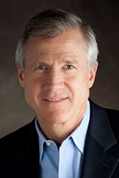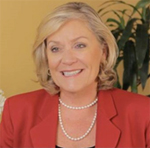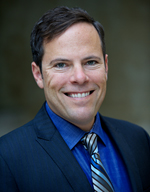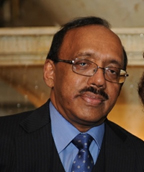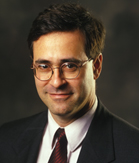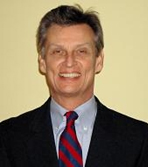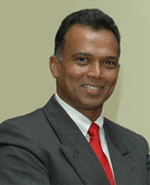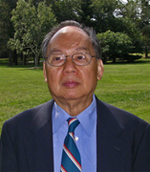About the Speakers
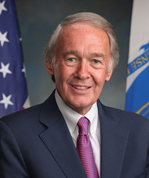
Senator Ed Markey
Senator Edward J. Markey from Massachusetts, a consumer champion and leader on energy, environmental protection and telecommunications policy, has a prolific legislative record on major issues across the policy spectrum. He served 37 years in the U.S. House of Representatives, and was elected to the Senate in a special election in June 2013.
As a national leader on environmental and climate issues, Senator Markey has consistently fought to create new jobs in American clean energy. In the House of Representatives, he served as the Ranking Member of the Natural Resources Committee. From 2007 to 2010, he served as Chairman of the Select Committee on Energy Independence and Global Warming, and served on the Energy and Commerce Committee, where he was Chairman of the Subcommittee on Energy and the Environment.
He is the principal House author of the 2007 fuel economy law, which will increase fuel economy standards to 54.5 miles per gallon by 2025, and is the author of the appliance efficiency act of 1987. In 2009, he co-authored the landmark Waxman-Markey American Clean Energy and Security Act — the only comprehensive climate legislation ever to pass a chamber of Congress. In recognition of his national leadership on environmental issues, he was named Chair of the Senate Climate Change Clearinghouse. In addition, Senator Markey is a member of the U.S. Senate Committee on Foreign Relations, where he serves as Chairman of the Subcommittee on International Development and Foreign Assistance, Economic Affairs, International Environmental Protection, and Peace Corps.
Senator Markey attended Boston College and Boston College Law School and served in the U.S. Army Reserve.
Benoit Lebot
Benoit Lebot, Executive Director of the International Partnership for Energy Efficiency Cooperation (IPEEC), has had an extensive history working in the fields of energy efficiency, climate change mitigation, and clean energy policies. In his previous position as Climate Change & Sustainable Energy Policy Advisor for the United Nations Development Programme (UNDP), Mr. Lebot provided technical leadership on UNDP activities to address climate change and sustainable energy policies in developing countries and emerging economies. He developed and managed UNDP’s portfolio of climate change mitigation projects in sub-Saharan Africa with a specific focus on energy efficiency public policies -- including legal, fiscal and technical measures. From 1997 to 2003, Mr. Lebot worked at the International Energy Agency as an advisor within the Energy Efficiency Policy Analysis Division. Prior to that (1990-1997), at the French National Energy and Environmental Agency (ADEME), he led technical studies for the first directives related to the promotion of energy efficiency in the European Union. Mr. Lebot started his international career in energy efficiency as a Research Engineer at the Energy Efficiency Division of Lawrence Berkeley National Laboratory. He is a Civil Engineer from France’s National School of Public Works (1986) and holds a Master of Science in Mechanical Engineering from the University of California in Berkeley (1987).
Rob Pratt
Rob Pratt is the founder and CEO of GreenerU, a company dedicated to helping colleges and universities become more energy efficient and sustainable. He was the founder and CEO of Energia Global, a company that became one of the leading renewable energy companies in Central America. Mr. Pratt served as Director of the Massachusetts Renewable Energy Trust, a $250 million state fund to promote the development of renewable energy projects in the state. He was also Senior Vice President of the Kendall Foundation, where he led foundation initiatives focused on energy efficiency policy and financing innovations. He is a national leader in clean energy, Chairman Emeritus of ACORE; Chairman and founder (1984) of the IIEC; board member of the Alliance to Save Energy; and co-founder and board member of the New England Clean Energy Council. Mr. Pratt received an MPA from Harvard’s Kennedy School, a JD degree from Georgetown, and a BA from Wesleyan University.
Panel Discussion:
Emerging Issues in Energy Efficiency and Climate Change
Kateri Callahan brings more than 25 years of experience in policy advocacy, fundraising, coalition building and organizational management to her position as the president of the Alliance to Save Energy, headquartered in Washington, D.C. The Alliance was established in 1977 as a premier, bipartisan non-government organization that works to advance energy efficiency for a healthier economy, cleaner environment and greater energy security.
Ms. Callahan has served as president of the Alliance since January 2004, leading a staff of nearly 40 and overseeing a budget of approximately $8 million annually. Under Callahan’s leadership, the Alliance conducts policy, communications, research, education and market transformation initiatives. She is also a board member at a number of organizations, including Duke’s Center for Energy, Development and the Global Environment (EDGE) and the U.S. Chamber of Commerce 21st Century Energy Institute.
Reid Detchon
Reid Detchon is Vice President for Energy and Climate at the United Nations Foundation, a portfolio that includes the Foundation’s partnership with the Club of Madrid, Global Leadership for Climate Action. He also serves as Executive Director of the Energy Future Coalition, a broad-based non-partisan public policy initiative focused on three critical energy challenges – oil dependence, climate change, and global energy poverty.
Mr. Detchon previously served as Director of Special Projects in Washington for the Turner Foundation; as a principal at Podesta Associates, a government relations and public affairs firm in Washington; as the Principal Deputy Assistant Secretary for Conservation and Renewable Energy at the U.S. Department of Energy from 1989 to 1993; as principal speechwriter for Vice President George H. W. Bush; as a staff member and legislative director for U.S. Senator John Danforth of Missouri; and as an award-winning reporter for the Columbia (Mo.) Daily Tribune. He is a graduate of Yale University and lives in Bethesda, Maryland.
Ivan Jaques
Ivan Jaques is a Senior Energy Specialist at the Energy Sector Management Assistance Program (ESMAP) at the World Bank. His main work area is supporting cities in developing countries to be more energy efficient. Before joining the Bank, Mr. Jaques was Deputy Director of Chile’s Energy Efficiency Program and Head of the Studies Area at Transantiago (focused on reforming public transport in Santiago). Earlier he was Team Leader at the Asia Pacific Energy Research Centre for APEC economies in Tokyo, Japan, and Researcher at the Energy Research Program (PRIEN) at the University of Chile. He received his Industrial Engineering degree from the University of Chile.
David Rosenheim
In his role as Executive Director of the Climate Registry, David is responsible for providing the strategic direction for The Registry and oversees its program, services and staff. He acts as chief liaison with the state and provincial Board members, as well as between states and provinces and their respective federal governments.
David is a proven senior executive with experience as COO, CEO and Director on several corporate Boards. In his previous position, David oversaw U.S. business development for Offsetters, a leading carbon management organization, and he also serves as co-director of the Northern California chapter of Environmental Entrepreneurs. Prior to that, David was an entrepreneur in the high tech sector, founding and/or leading innovative internet start-ups.
David has an MBA from Oxford University, and has extensive experience across the range of key business functions: strategic planning, vision setting, raising capital, business development, board relations, marketing, and digital product development. He is based in San Francisco.
Laura Van Wie McGrory
For two decades, Laura Van Wie McGrory has been managing international energy efficiency projects in Asia, Africa, SE Europe, and Latin America. She is currently Vice President for North America with the International Institute for Energy Conservation (IIEC); and Vice President of International Programs at the Alliance to Save Energy.
Ms. Van Wie McGrory previously worked with Lawrence Berkeley National Laboratory, focusing on energy efficiency appliance standards and public sector energy efficiency programs, and helped produce several climate change mitigation reports for the Intergovernmental Panel on Climate Change. She also has consulted with the U.S. Environmental Protection Agency and the World Bank. She has a bachelor’s degree in geography and environment from Dartmouth College and a master of international environmental policy from Columbia University.
Panel Discussion: Perspectives from IIEC’s Presidents
Deborah Lynn Bleviss
Deborah Lynn Bleviss is Administrative Director of and a professor within the Energy, Resources and Environment (ERE) Program at the Johns Hopkins University School of Advanced International Studies (SAIS). Ms. Bleviss has worked in the energy and environmental field for more than 30 years. Her positions have included program director of the Inter-American Development Bank’s “Sustainable Markets for Sustainable Energy” program, and Advisor to the Assistant Secretary of Energy for Energy Efficiency and Renewable Energy at USDOE. She was also a founder of the International Institute for Energy Conservation, and served as its first director from 1986 to 1995.
Ms. Bleviss is the author of numerous articles and papers, and her book, The New Oil Crisis and Fuel Economy Technologies: Preparing the Light Transportation Industry for the 1990s, was published in 1988. Trained as a physicist, she received her education from UCLA and Princeton University.
Felix Gooneratne
Felix Gooneratne joined IIEC as Asia Director in January 2001 and assumed his current role as President and CEO in October 2013. With more than 28 years of experience advancing energy efficiency, demand-side management (DSM) and related international clean energy efforts, Felix brings forward reaching vision to IIEC, and employs his proven technical expertise to implement programs and achieve results. Felix has designed and implemented projects throughout the United Kingdom, Australia, Asia, Africa and the Pacific region – managing international teams to achieve significant energy savings.
Prior to joining IIEC, Mr. Gooneratne held senior positions at PA Consulting Group, UNDP, Bechtel International, and the Australian Department of Energy. He has extensive project management experience with agencies such as the World Bank, Asian Development Bank, United Nations Development Program, USAID, AusAid and the European Commission. Mr. Gooneratne is a Chartered Chemical Engineer and a Fellow of the Australian Institute of Energy; he holds his Chemical Engineering degree from University of Wales, Cardiff, United Kingdom.
Russell Sturm
Russell Sturm, Head of Energy Access/ Advisory Services at the International Finance Corporation (IFC), has been an innovator in the field of sustainable energy market development for more than 25 years. Mr. Sturm leads IFC’s energy access advisory business where he works with the private sector to mobilize clean energy and energy investment. His innovative work with commercial banks catalyzed IFC’s $1 billion sustainable energy finance business. As creator of the World Bank Group’s Lighting Africa program, Russell’s work enables commercially sustainable private sector delivery of energy services to those living off the electric grid.
Prior to joining IFC in 2000, Russell was President of IIEC. Previously, as Vice-President of Energy Management Services, he developed U.S. distributed generation and EE projects. While completing studies in energy and natural resource policy and finance at the University of North Carolina and Harvard University/Kennedy School of Government, Russell did econometric modeling at the Oak Ridge National Laboratory, and worked on the first ESCO agreements in the United States at the law firm of Lane and Edson.
Griffin Thompson
Griffin M. Thompson, Branch Chief and Senior Climate Change Program Manager at the U.S. State Department’s Bureau of Oceans, Environment and Science, oversees the design and management of the Department’s energy and climate project portfolio. This entails providing technical and policy guidance on cleaner fossil, renewable energy and energy efficiency technologies and practices. As the Bureau’s renewable energy specialist, Dr. Thompson provides guidance on the nexus between renewable energy and the U.S. Government’s diplomatic, climate change, and development objectives. He is the U.S. Government lead negotiator on Technology within the U.N. Framework Convention on Climate Change (UNFCCC), and the Lead U.S. Negotiator for Energy at the UN Commission on Sustainable Development. Before coming to the State Department, Dr. Thompson served as Director of the Office of Energy at USAID, President of IIEC, and Senior Policy Analyst at the National Renewable Energy Laboratory. He has a B.A. in English from Gonzaga University and a Ph.D in Political Philosophy from Georgetown University.
Matthew Mendis
Matthew Mendis is Vice President/Managing Director for Nexant’s Government Services Group, based in Washington, DC, and is currently Nexant’s Manager for the USAID $65 million Power Africa contract. He is an internationally recognized energy, environment and finance expert with over 35 years of experience and has worked in more than 45 developing countries. He has worked at the World Bank, USAID, and other bilateral and multilateral development agencies. He also served as Corporate VP at International Resources Group (IRG/Engility) and was founder and President of Alternative Energy Development, Inc. At the World Bank, Matthew created and implemented loan programs with innovative financing mechanisms for small-scale energy efficiency and renewable energy initiatives. Mr. Mendis has an MA in Natural Resources Economics and BSc in Environmental Engineering from the University of Maryland. He serves on the board of trustees of the University of Maryland (UMD) College Park Foundation and the Board of Visitors of the UMD College of Behavioral and Social Sciences, and is the Lead Trustee for the UK based charity, Global Village Energy Partnership International.
IIEC Award Presentation to Nay Htun
Today’s IIEC Special Recognition Award is presented to Dr. Nay Htun for his outstanding contributions and guidance to the International Institute for Energy Conservation in its mission to accelerate energy efficiency, promote sustainability and reduce greenhouse gas emissions in developing and emerging countries.
As Director and Regional Representative for the Asia Pacific for the United Nations Environment Programme, Dr. Htun played a critical role in the development and growth of the IIEC. Involved from the early days of its formation, he served as a mentor for the Institute as it selected a site for its first regional office in Bangkok, and he utilized his contacts and expertise in helping to define and develop the IIEC’s initial activities.
Dr. Htun provided to the Institute an important sounding board and source of inspiration for the design and planning of activities that included, among other initiatives, a major energy efficiency and demand-side management program in Thailand. He also catalyzed its work in transportation, leading to a conference focusing on the transportation challenges facing Bangkok. Through the years, he encouraged the IIEC to enlarge its vision and accelerate its energy efficiency leadership in developing countries around the world.
Dr. Htun’s distinguished career has included decades of service in the United Nations, and an impressive list of academic positions and honors. He served in the United Nations for more than 25 years, ultimately rising to become UNEP’s Deputy Executive Director and then Director of the Asia Bureau at the United Nations Development Programme (UNDP), both positions at the Assistant-Secretary General level. He was Programme Director coordinating the drafting of Agenda 21, and helped organize the 1992 Rio Earth Summit. At the UN Secretariat, he was the focal point for business and industry, and helped establish the Business Council for Sustainable Development, Geneva.
Dr. Nay Htun is currently a Research Professor at the College of Engineering and Applied Sciences of Stony Brook University in New York, where he teaches Environmental Conflicts Negotiation and Resolution, and Global Environmental Change. In addition, he has been a Fellow and Visiting Professor of International Environmental Policies at the Center for Environmental Policies, Imperial College of London; a Visiting Professor and Senior Advisor at Lund University, Sweden; Visiting Professor and Member of the International Advisory Board at Chulabhorn Research Institute in Bangkok; and Honorary Professor of Tongji University in Shanghai. He was also Chancellor Distinguished Fellow at the University of California, Irvine; and Visiting Scholar at Harvard as well as the Fletcher School of Tufts University.
The IIEC’s Board of Directors is pleased to extend this award to Dr. Nay Htun, and it thanks him for the invaluable role that he played in assisting the Institute in its formation and growth through the years.


